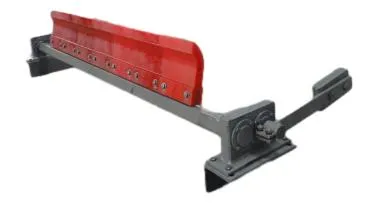 Afrikaans
Afrikaans  Albanian
Albanian  Amharic
Amharic  Arabic
Arabic  Armenian
Armenian  Azerbaijani
Azerbaijani  Basque
Basque  Belarusian
Belarusian  Bengali
Bengali  Bosnian
Bosnian  Bulgarian
Bulgarian  Catalan
Catalan  Cebuano
Cebuano  Corsican
Corsican  Croatian
Croatian  Czech
Czech  Danish
Danish  Dutch
Dutch  English
English  Esperanto
Esperanto  Estonian
Estonian  Finnish
Finnish  French
French  Frisian
Frisian  Galician
Galician  Georgian
Georgian  German
German  Greek
Greek  Gujarati
Gujarati  Haitian Creole
Haitian Creole  hausa
hausa  hawaiian
hawaiian  Hebrew
Hebrew  Hindi
Hindi  Miao
Miao  Hungarian
Hungarian  Icelandic
Icelandic  igbo
igbo  Indonesian
Indonesian  irish
irish  Italian
Italian  Japanese
Japanese  Javanese
Javanese  Kannada
Kannada  kazakh
kazakh  Khmer
Khmer  Rwandese
Rwandese  Korean
Korean  Kurdish
Kurdish  Kyrgyz
Kyrgyz  Lao
Lao  Latin
Latin  Latvian
Latvian  Lithuanian
Lithuanian  Luxembourgish
Luxembourgish  Macedonian
Macedonian  Malgashi
Malgashi  Malay
Malay  Malayalam
Malayalam  Maltese
Maltese  Maori
Maori  Marathi
Marathi  Mongolian
Mongolian  Myanmar
Myanmar  Nepali
Nepali  Norwegian
Norwegian  Norwegian
Norwegian  Occitan
Occitan  Pashto
Pashto  Persian
Persian  Polish
Polish  Portuguese
Portuguese  Punjabi
Punjabi  Romanian
Romanian  Russian
Russian  Samoan
Samoan  Scottish Gaelic
Scottish Gaelic  Serbian
Serbian  Sesotho
Sesotho  Shona
Shona  Sindhi
Sindhi  Sinhala
Sinhala  Slovak
Slovak  Slovenian
Slovenian  Somali
Somali  Spanish
Spanish  Sundanese
Sundanese  Swahili
Swahili  Swedish
Swedish  Tagalog
Tagalog  Tajik
Tajik  Tamil
Tamil  Tatar
Tatar  Telugu
Telugu  Thai
Thai  Turkish
Turkish  Turkmen
Turkmen  Ukrainian
Ukrainian  Urdu
Urdu  Uighur
Uighur  Uzbek
Uzbek  Vietnamese
Vietnamese  Welsh
Welsh  Bantu
Bantu  Yiddish
Yiddish  Yoruba
Yoruba  Zulu
Zulu conveyor hanger
The Importance of Conveyor Hangers in Material Handling Systems
In modern manufacturing and logistics, efficiency and reliability are paramount. One of the critical components that contribute to these factors in material handling systems is the conveyor hanger. Conveyor hangers are essential fixtures that support the operational infrastructure of conveyor systems, ensuring that materials are moved seamlessly and effectively from one point to another.
At its core, a conveyor hanger is designed to suspend and support conveyor belts or roller systems. These hangers are a pivotal part of the layout and configuration of conveyor systems, serving both structural and functional purposes. The robust design of conveyor hangers allows them to bear significant loads, contributing to the overall stability of the system. Without them, conveyors might sag or misalign, severely disrupting workflow and reducing the lifespan of the equipment.
One of the primary functions of conveyor hangers is to maintain proper tension and alignment of the conveyor belt. A misaligned conveyor can lead to increased wear and tear on the belt and components, resulting in premature failures and costly downtime. By using high-quality hangers, manufacturers can ensure that their conveyor systems operate smoothly, reducing maintenance needs and enhancing productivity.
The materials used in the construction of conveyor hangers can vary widely. They are usually made from durable materials like steel or aluminum, which maintain their structural integrity under heavy loads. Additionally, the choice of material also affects the hanger's resistance to corrosion, temperature fluctuations, and other environmental factors, making it crucial for those in industries like food processing or pharmaceuticals, where cleanliness and durability are essential.
conveyor hanger

When implementing conveyor hangers, it's essential to consider their placement and spacing for optimal performance. Designers and engineers must take into account the specific requirements of the conveyor system, including the weight of the load, the speed of operation, and the dimensions of the working area. Properly spaced hangers will prevent sagging and misalignment, ensuring a consistent flow of materials and enhancing operational efficiency.
In recent years, there has been a growing trend toward automation in material handling. This development has led to new innovations in conveyor hanger designs. Modern systems often incorporate adjustable hangers that can be modified according to the changes in product sizes or weights, allowing for more flexibility in the production process. Furthermore, advancements in materials technology have led to the production of lightweight yet highly durable hangers, helping reduce overall system weight without compromising strength.
The impact of conveyor hangers extends beyond merely supporting the conveyor system. Their proper installation and maintenance can significantly affect safety within the workplace. A well-supported conveyor minimizes the risk of accidents related to equipment failure, which is paramount in fast-paced environments where heavy machinery is prevalent. Management must ensure regular inspections and maintenance of conveyor hangers as part of their safety protocols, further reinforcing the importance of these inconspicuous yet vital components.
Moreover, in discussions regarding sustainable practices, the longevity and recyclability of conveyor hangers should also be considered. Investing in high-quality materials often leads to longer-lasting equipment, reducing the frequency of replacements and the associated environmental footprint. As industries continue to move toward greener practices, the role of durable and sustainable conveyor hangers becomes increasingly significant.
In conclusion, conveyor hangers are far more than simple support structures; they are integral components that enhance the functionality and efficiency of material handling systems. Their role in maintaining the integrity of conveyor systems cannot be overstated, as they contribute to operational effectiveness, safety, and longevity. As industries continue to evolve, so too will the design and application of conveyor hangers, reinforcing their importance in modern manufacturing and logistics. Investing in quality conveyor hangers is an investment in the future of a streamlined, efficient, and safe work environment.
-
Revolutionizing Conveyor Reliability with Advanced Rubber Lagging PulleysNewsJul.22,2025
-
Powering Precision and Durability with Expert Manufacturers of Conveyor ComponentsNewsJul.22,2025
-
Optimizing Conveyor Systems with Advanced Conveyor AccessoriesNewsJul.22,2025
-
Maximize Conveyor Efficiency with Quality Conveyor Idler PulleysNewsJul.22,2025
-
Future-Proof Your Conveyor System with High-Performance Polyurethane RollerNewsJul.22,2025
-
Driving Efficiency Forward with Quality Idlers and RollersNewsJul.22,2025





























